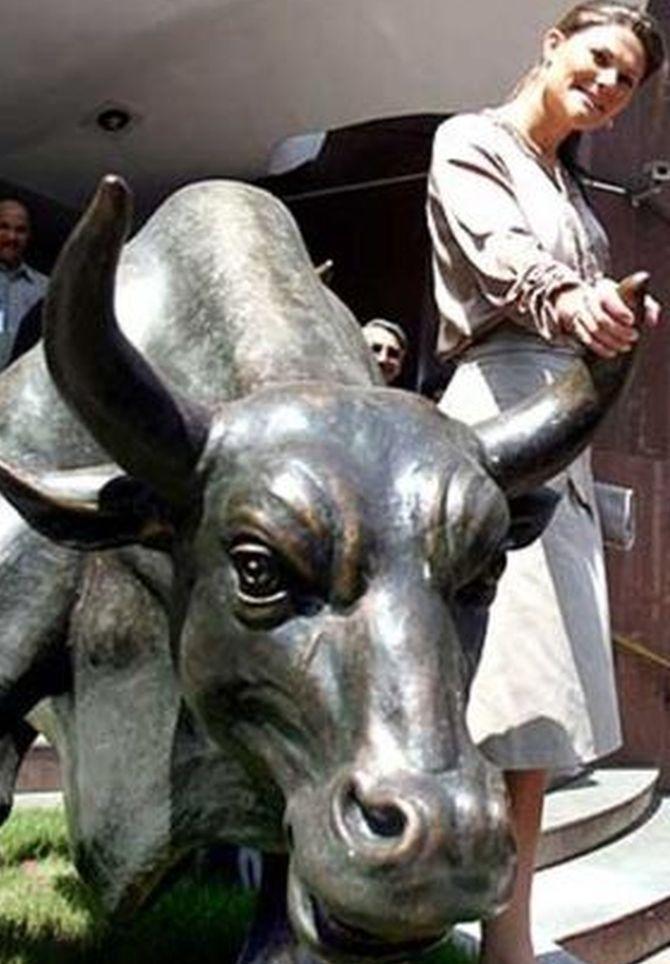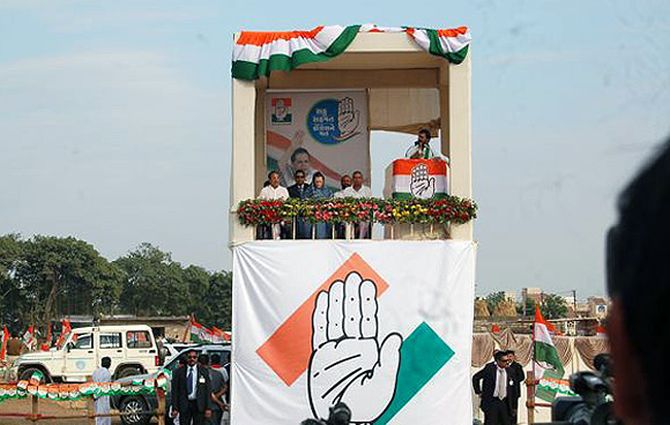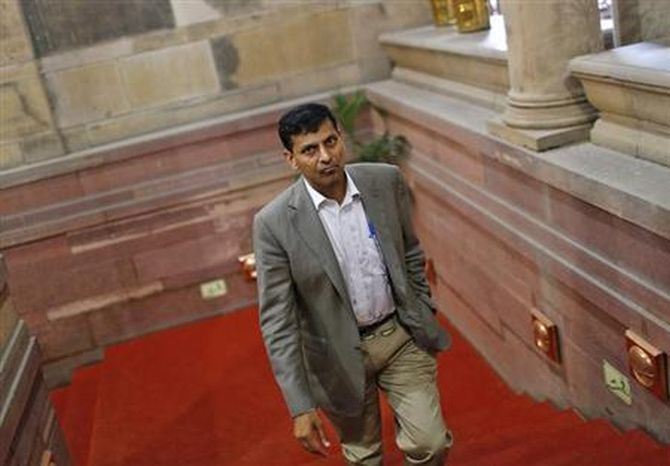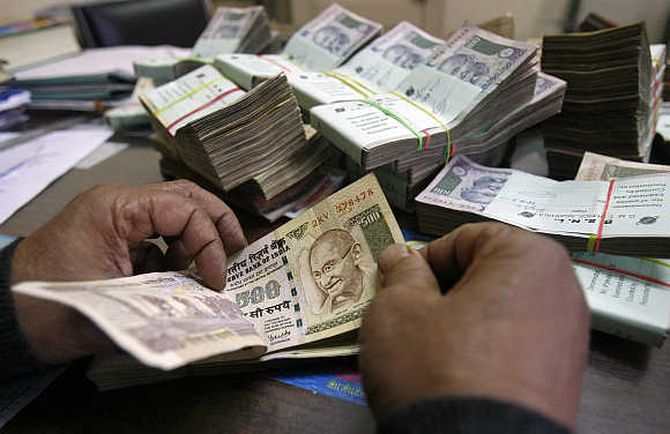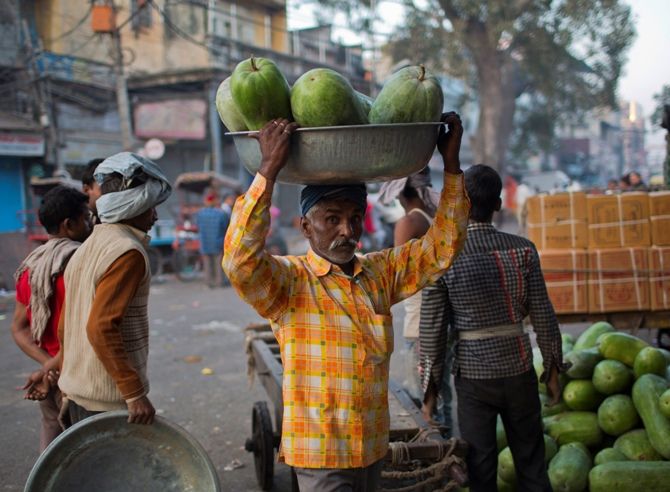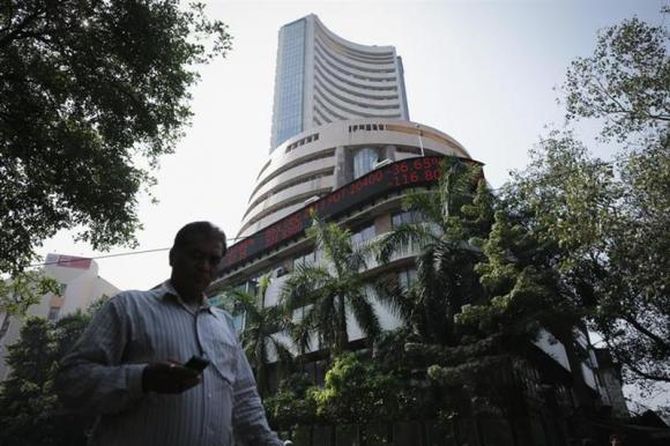 | « Back to article | Print this article |
Should investors expect optimism on D-Street before elections
If improvement in GDP growth and inflation are anything to go by, one can expect upward revision in Sensex, believes Aseem Dhiru, managing director and chief executive officer, HDFC Securities
Markets do not wait for events to unfold and then react to it. They anticipate a particular outcome and start discounting its possibilities well in advance. The single-most important event that will govern India’s stock market performance for 2014 is the outcome of general elections.
With the improving GDP number, moderating inflation, control over twin deficits and positive outlook after the polls, we can expect optimism from here to the run up to the general elections. Markets are mustering courage to break out of its six-year consolidation and move into fresh bull market territories beyond the recently tested all-time Sensex high.
Click NEXT to read more....
Should investors expect optimism on D-Street before elections
If the outcome of the elections is as expected, markets, which have lost hope on the government, will start discounting a brighter future. However, any negative surprise could lead to sharp correction and that is what we could see if the National Democratic Alliance (NDA) does not come to power with an emphatic majority. However, a weak coalition government would not be the end of the road for the markets. After an initial setback, markets should regain their composure.
And as hopes die down, any baby steps that the coalition take could be seen as giant strides by the markets. The United Progressive Alliance has proved that dynamics of politics matter more than the absolute numbers.
Click NEXT to read more...
Should investors expect optimism on D-Street before elections
Meanwhile, India has witnessed a substantial external adjustment in recent months including re-building of forex reserves besides the Reserve Bank of India governor Raghuram Rajan’s foresight that has successfully anchored rupee expectations.
Last year, commentators did not bat an eye lid while putting India as a part of ‘fragile five countries’ responsible for creating chaos in world markets. It became habitual — almost fashionable — to bracket India as vulnerable as South Africa and Turkey, when assessing current external vulnerabilities.
Click NEXT to read more....
Should investors expect optimism on D-Street before elections
Indian markets, hitherto considered the poster-child of emerging market vulnerability, has now donned a new status of a leader of global recovery. The rupee, which was a prodigal son of emerging currency basket, is now considered an outperformer among world currencies. The currency has held up remarkably since the taper commenced in the US and amid the latest bout of emerging market stress.
So, what can derail the optimistic mood? Three things are worrying us: 1) gold imports whenever freed 2) continued equity flows under taper 3) fate of Chinese economy.
Click NEXT to read more....
Should investors expect optimism on D-Street before elections
The biggest adjustment has occurred on the gold front, with gold imports expected to moderate from three per cent to 1.6 per cent of GDP. But if this will sustain remains an open question.
If the underlying drivers of gold sustain, this demand will simply show up in capital flight in the balance of payments. So curbing gold imports helps for a few quarters but is not the medium-term answer.
Click NEXT to read more...
Should investors expect optimism on D-Street before elections
Total stock of outstanding foreign institutional investor (FII) debt has dwindled from USD 37 billion to USD 22 billion over the past nine months.
However, FII equity investments are almost six-fold that of debt. Equity outflows — in the event of an adverse election outcome — perhaps pose the key event risk to the rupee in the coming months.
The problem can manifest from China. We do not expect a crash in Chinese economy leading to de-rating in emerging markets as many expect, though what is worrying us is the debt level of Chinese companies.
The debt to operating cash flow is now 7.7 times. Whenever we’ve seen systems move towards a range higher than six years, companies begin to reduce that capital expenditure and naturally repair their balance sheets.
This event, if it plays out, is likely to induce a downturn.
Click NEXT to read more...
Should investors expect optimism on D-Street before elections
A hope rally is awaiting us if the current opinion polls are reading the mood of the country right. Investors must stay warned that the real economy and corporate performances would not take time to improve and the markets after the champagne froth dies down will start tracking corporate earnings growth.
